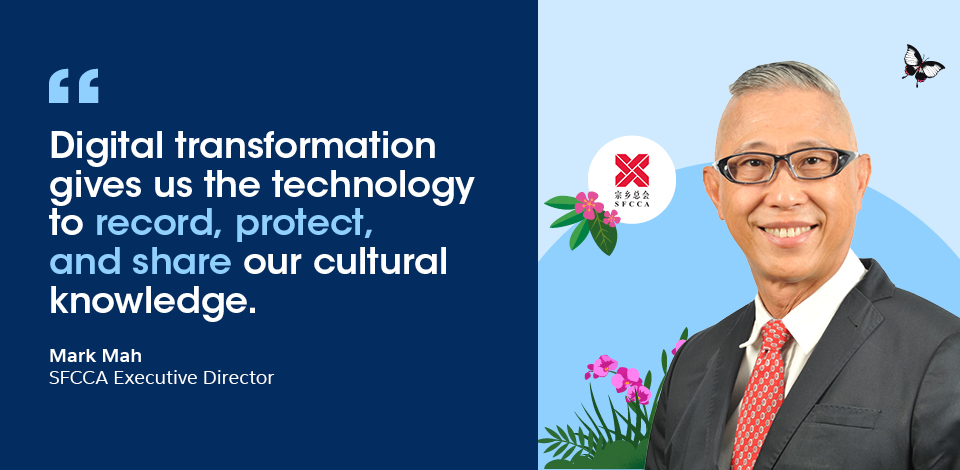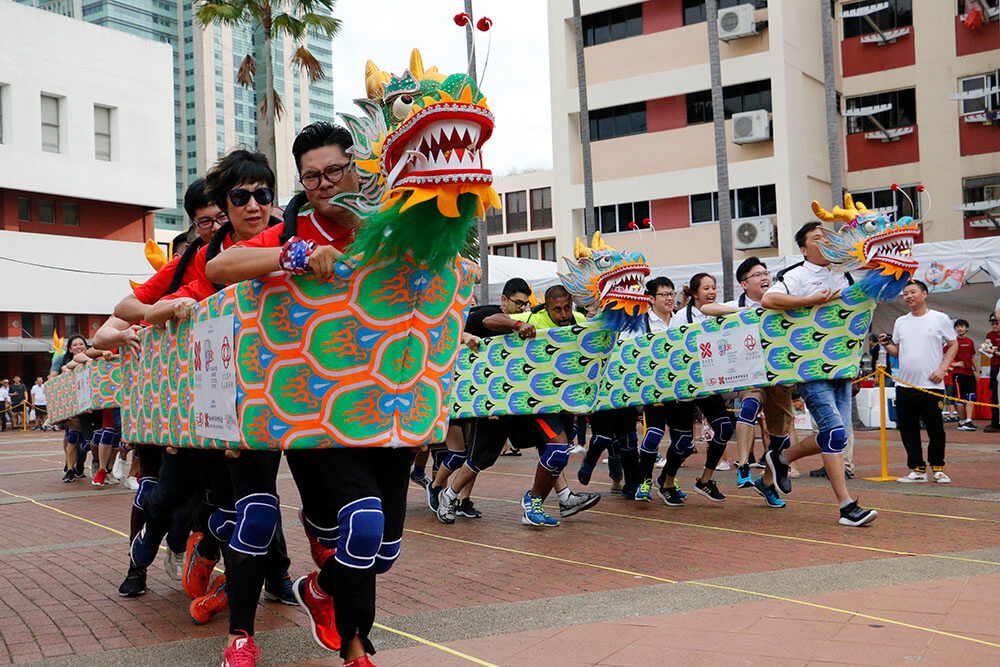Chinese clan associations — also known as ‘huay kuan’ — have a rich history in Singapore. The first clan associations date back to the early 19th century. They provided vital support for Chinese immigrants settling in Singapore.
Today, Singapore’s Chinese clan associations preserve cultural traditions and connect new generations with their ancestral heritage. The Singapore Federation of Chinese Clan Associations (SFCCA) wants to see this tradition of community togetherness thrive into the future.
“The clans’ main objective is to help their communities,” says Mr Mark Mah, SFCCA Executive Director. “In Singapore, the younger generation is very proactive in that way. Many want to do good deeds for their communities, and the clans can help them do so.”

Mr Mah says many of the clan associations are modernising to attract younger members. They are using technology to preserve cultural knowledge so it can be passed on to the next generation.
“Much of our cultural knowledge is stored in the memories of the older clan members,” Mr Mah explains. “Our digital transformation gives us the technology to record, protect, and share this knowledge.”
Preserving cultural knowledge
Digital transformation is also helping the SFCCA — and many of the more than 230 clans it represents — centralise, protect, and utilise member data.
The SFCCA and the clans rely on part-time staff and volunteers. The clans also elect new committee members every three to five years. Mah explains that frequent leadership handovers and transient volunteers have been difficult to manage without a centralised platform in place.
“Previously we used mostly Excel spreadsheets and paper records to manage membership and event data,” Mr Mah says. “Data could be lost in transition, corrupted, or compromised. It was very messy and difficult for the clan associations to access and share data they could trust.”
Mr Mah adds that it was also difficult for staff to access and utilise the cultural knowledge and expertise of their members.
“For example, events staff might be looking for a clan member to be an expert speaker at an event. They would have to rely on memory or ask around to see if anyone knew a member with the relevant expertise. Centralising this kind of information about members on a CRM means we can immediately search and sort all members based on their profession or expertise.”
Implementing a centralised solution
Mr Mah knew Salesforce was the solution, and the SFCCA committee members agreed.
“I didn’t have any trouble convincing them,” he says. “Most of our committee members come from the business world, so they understand this problem and why a CRM is needed to centralise data.”
Mr Mah chose CrimsonWorks as SFCCA’s implementation partner. Salesforce was up and running by the end of 2019, just before COVID-19 caused extensive lockdowns in Singapore.
“We were able to run face-to-face Salesforce training in the office before COVID-19, so our staff members were immediately able to work from home when the lockdowns were announced,” says Mr Mah.
“There was no copying and pasting of data between spreadsheets. All the data was centralised in Salesforce. Our team could all access it from their homes, which made them more effective. Salesforce also gave us much more confidence that the data was accurate and secure.”
Learn more about how Salesforce.org helps a global community of nonprofits and educational institutions operate effectively, raise funds, and build more meaningful relationships with those they serve.
Personalising and protecting data
A handful of clan associations are also now using Salesforce to manage their membership and events data. Mr Mah says that while there was some early resistance among SFCCA staff and clan members, they are now seeing clear benefits.
“There are many Salesforce functions we use. We can now access data like how long council members have been with the SFCCA, which clans they belong to, and their position level. We can also track our members’ activity, which helps with outreach.”
Mr Mah explains that organisation-wide access to centralised data is helping to personalise communications with members.
“Our events staff can now track which members are participating in certain cultural activities. Now, when we want to promote new events, we can target members based on their interests rather than doing mass sendouts.”
Salesforce is also serving as an accurate, protected, and centralised ledger for managing the SFCCA library inventory. This includes cultural artefacts that are often given to the clan associations.
“We need to be able to effectively record and track these treasures so we can protect them and pass them to the next generation,” Mr Mah says. “Salesforce helps us do that.”

Bridging the generation gap
The SFCCA’s commitment to digital transformation extends beyond Salesforce. The organisation helped some clan associations hold virtual events throughout pandemic lockdowns, and made a range of digital assets available to members.
From attending Zoom seminars to viewing online operas and voting in digital pageants, clan association members had plenty to do throughout the lockdowns. Mr Mah says these shared digital experiences are bridging generation gaps within families.
“The younger generation are participating in these online events, and communicating with their parents about their cultural heritage,” he says. “Of course, physical interaction is more fun, but our outreach is much higher with digital events. There are five to 10 times more people participating now.
“The clans will have a bright future if they continue this transformation. Salesforce can help the clans reach out to their communities and bring the generations together.”
Learn more about how Salesforce.org helps a global community of nonprofits and educational institutions operate effectively, raise funds, and build more meaningful relationships with those they serve.



















![[Illustration] An AI agent provides B2B customer service](https://www.salesforce.com/ap/blog/wp-content/uploads/sites/8/2024/12/B2B-AI-Agents-1680x1120-1.jpg?w=150&h=150&crop=1&quality=75)

